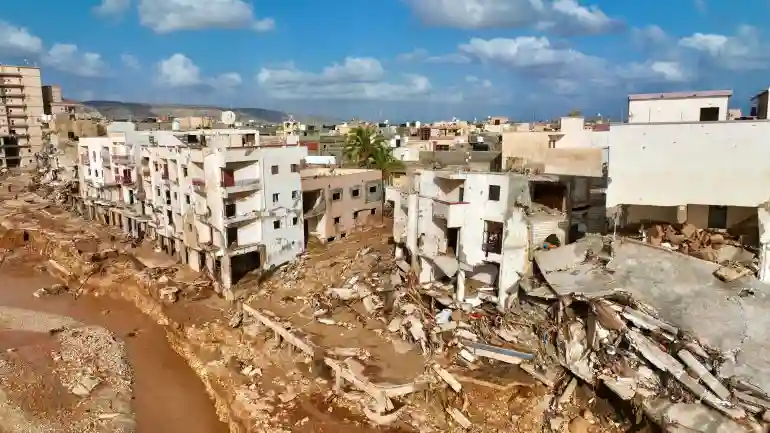The United Nations reported on Sunday that the death toll from the devastating floods in the Libyan city of Derna is currently estimated to be at least 11,300. However, the Libyan Red Crescent, mentioned in the report, later denied this figure, expressing shock at being associated with those numbers.
Following the deadly flash floods that occurred on September 16, 2023, in Derna, members of the Emirati Rescue Team have been providing assistance in relief efforts in the eastern Libyan city.
Almost a week after the tragic incident, the focus has now shifted to providing care for the survivors of the disaster. The number of lives lost varies significantly depending on different estimates. The health minister of the eastern-based administration, Othman Abdeljalil, reported an official death toll of 3,166. However, the United Nations report states that the death toll in Derna alone has risen to 11,300, with an additional 10,100 people still missing in the severely affected city. The OCHA report said:
These figures are expected to rise in the coming days and weeks as search-and-rescue crews work tirelessly to find survivors.
The Libyan Red Crescent later on Sunday denied that last week’s flooding resulted in 11,300 deaths after the UN offered that toll and cited the rescue group. Libyan Red Crescent spokesman Tawfik Shoukri told AFP from Benghazi:
We are shocked to see our name mixed up with these figures.
Aid is being delivered to assist emergency services in dealing with the aftermath. The International Organization for Migration reports that at least 40,000 people have been displaced in the region, although the actual number could be higher due to limited access to the heavily affected areas.
The flooding occurred when two dams upstream from Derna burst after being overwhelmed by torrential rains caused by Storm Daniel, which had hurricane-strength winds. These dams were constructed to protect the city of Derna, which experienced significant flooding in the past.
Rescue teams from Malta discovered a beach strewn with dead bodies, highlighting the tragic consequences of the disaster. International aid from the United Nations, Europe, and the Middle East is being provided to support the thousands of survivors. This aid includes essential medical supplies, emergency surgical equipment, body bags, tents, blankets, hygiene kits, and food. Heavy machinery is also being deployed to assist in debris clearance.
The inadequate infrastructure in Libya, worsened by years of neglect, conflict, and division since the murder of President Col Muammar Gaddafi in 2011, contributed to the severity of the flooding. Investigations are underway to determine the circumstances leading to the collapse of the dams. The situation is further complicated by the presence of landmines and unexploded ordnance, which have been shifted by the floodwaters and pose additional risks to displaced individuals. Aid organizations are also concerned about the potential outbreak of waterborne diseases, such as cholera, in the affected areas.

